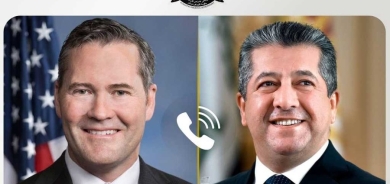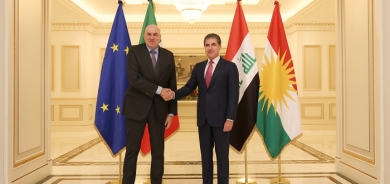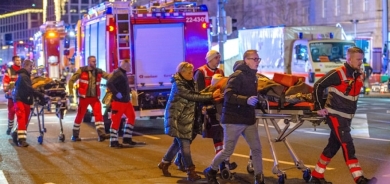Kurdish Parties Struggle to Agree on Governance in Kirkuk, Risk Losing Majority Support

Over two months have passed since the conclusion of Kirkuk's provincial elections, yet the top Kurdish factions in the city remain unable to reach a consensus on joining forces in the council, raising concerns regarding their ability to secure a Kurdish governor for the province.
In December's local elections, Kirkuk's predominant Kurdish parties collectively secured seven seats out of the 16-seat council, with the Patriotic Union of Kurdistan (PUK) holding five seats and the Kurdistan Democratic Party (KDP) claiming two.
Despite a recent high-level meeting held in Sulaimani's Dabashan in early February, where both parties acknowledged the necessity of appointing a Kurdish governor for Kirkuk, no concrete steps towards cooperation have been announced.
Siddiq Ahmed, deputy secretary of the Kurdistan Communist Party (KCP), emphasized the urgent need for Kurdish leadership to address the current disagreements between the KDP and the PUK in Kirkuk. Ahmed stressed that failure to resolve these disputes could result in the loss of support from the province's Kurdish population.
The failure of Kirkuk's provincial council to appoint a governor within two months prompted Iraqi Prime Minister Mohammed Shia' al-Sudani to convene two separate meetings with Kirkuk's winning political factions in Baghdad.
During a recent meeting chaired by Prime Minister al-Sudani, the parties agreed to collaborate on presenting "a single working document" within two weeks, aimed at establishing a framework for cooperation and expediting the governor appointment process.
However, concerns persist as Arabs, holding six seats, and Turkmens, holding two, are expected to unite within the council, forming an eight-seat opposition challenging Kurdish aspirations for a Kurdish governor.
Ali Qallayi, head of the PUK's Kirkuk-Salahaddin election center, warned of the potential loss of the Kurdish majority vote to Arabs by the 2032 elections due to the rapidly increasing Arab population in Kirkuk. He emphasized the necessity of strategic collaboration with the Turkmens, considering them non-threatening to Kurdish ethnic security in the city.
In contrast, Qahtan al-Wandawi, Kirkuk head of the Iraqi Turkmen Front, advocated for the rotation of the governor position among the city's diverse components.
The ongoing feud between the KDP and the PUK has hindered cooperation in Kirkuk for years, with the two parties currently locked in disputes over economic and governance issues in the Kurdistan Region.
Sayed Hassan, a prominent Kirkuk figure, warned that failure to reach an agreement would alienate Kurdish voters further, emphasizing the need for the KDP and PUK to prioritize Kirkuk's Kurdish issues over their internal conflicts.
Kirkuk witnessed a record-high turnout of 65 percent in the provincial elections on December 18, marking the first such elections since 2005. Amendments to the provincial council elections law in May have added complexity to the process, making it challenging to predict the future governance of Kirkuk.
The amendments stipulate that election results cannot solely determine Kirkuk's future and emphasize fair representation across the province's diverse components, regardless of electoral outcomes.
The Kurdish parties' inability to reconcile their differences poses significant challenges to Kirkuk's governance and risks diminishing Kurdish influence in the province's political landscape.













